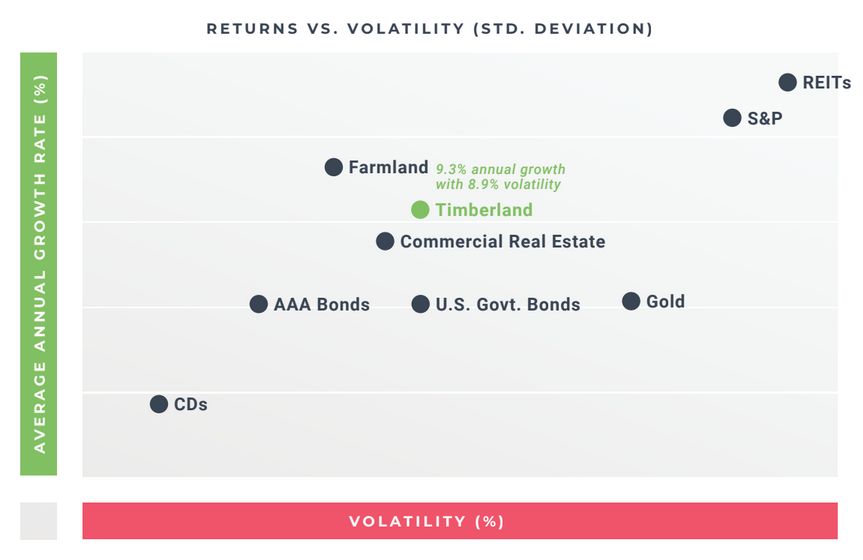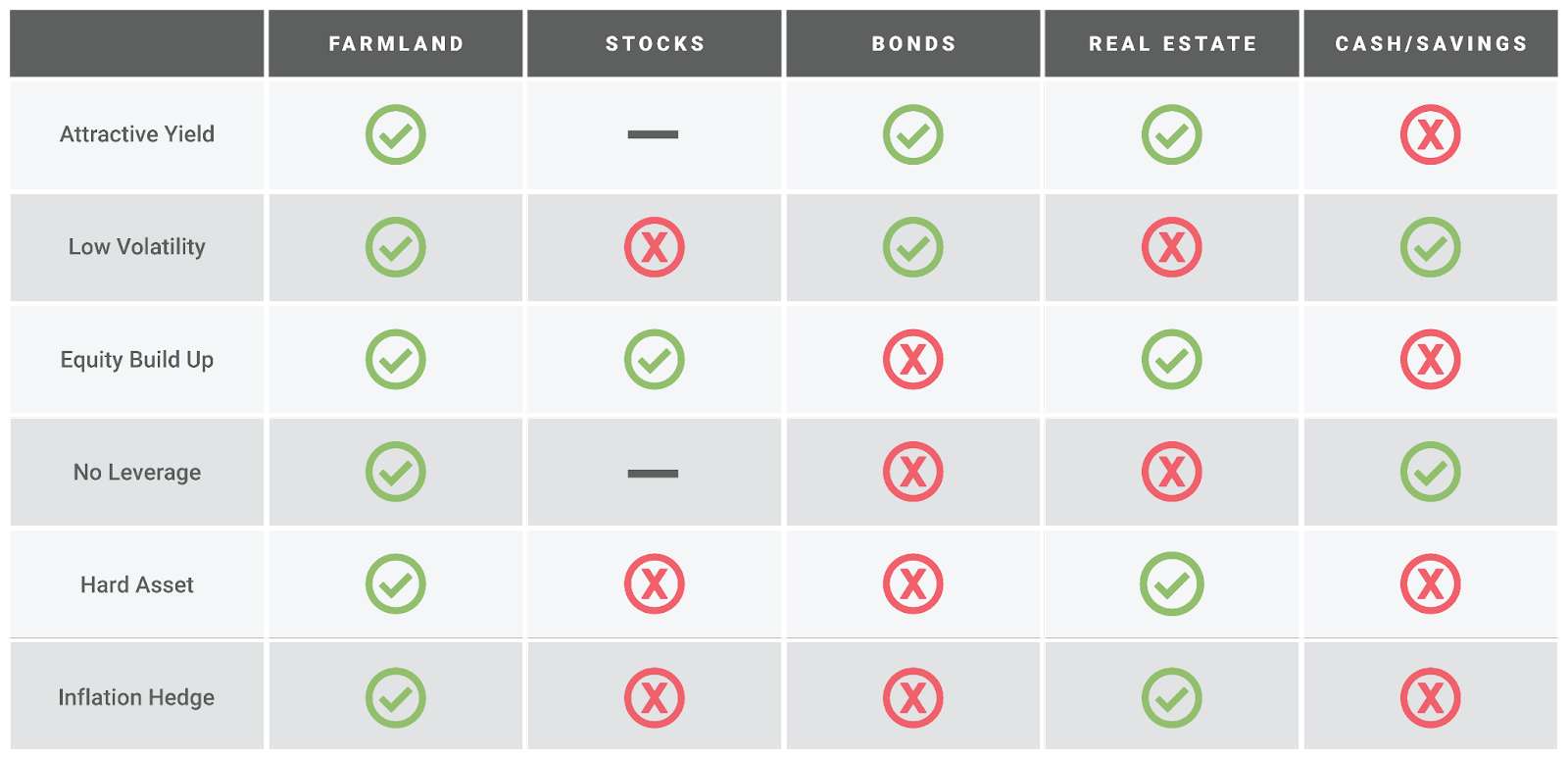Editor's Note: This article was submitted by our partner, AcrePro.
With inflation higher than it has been since November of 1981, investors may be seeking out inflation resistant asset classes to add to their portfolios.
Allocations incorporating more inflation resistant asset classes like stocks, bonds, gold, commodities, and real estate become more common when inflation rises.
But what are investors overlooking? Farmland is an asset class that has consistently proven to be more stable than even some of the most trusted assets, such as gold. However, it has been overlooked in lieu of general real estate. Why? Because it is an asset class that some may not entirely understand.
This article breaks down the different ways that farmland can be used in asset allocation, and why it is a sound method of hedging against inflation.
Farmland as an Asset Class
Farmland is a hard asset that has historically produced consistently positive returns with lower volatility and a strong correlation to inflation. As a result, this asset class tends to have attractive yields even during recessionary times.

Commercial real estate is similar to farmland, however, many of its assets will depreciate over time and require renovations, remodels, and consistent upkeep. Unlike commercial real estate, farmland’s assets tend to appreciate over time while also providing annual returns on cash rent.
Because most cash rents are paid upfront or biannually, and they tend to have exceptionally low vacancy rates, farmland can provide shield against uncertainty.
Allocating your assets into the farmland sector also offers diversity within a single asset class. While investing in an asset class like gold only offers one specific asset, farmland yields and returns will vary depending on the type of farm, location, and what is being grown.

Row Crop Farms
Row crop farmland produces commodities, which are widely recognized as inflation-resistant assets in themselves. Farmland’s intrinsic link to commodities markets are one reason farmland tends to track with inflation.
Farmland performance also tends to be regionally specific and highly related to the inherent properties of the land itself. Thorough due diligence and industry expertise can go much further in shielding farmland investments from risk than many other asset types.
Row crop farm investments may provide a return over a comparatively shorter hold period (3-5 years). They tend to generate moderate, stable cash flows from annual rents, with land appreciation playing a major role in total returns.
Permanent Crop Farms
Permanent crop farms like fruit and nut orchards are another type of farmland that may be beneficial to a portfolio of farmland investments. Unlike row crop farms, permanent crop farms generally have a longer hold period and are more volatile but offer generally higher returns. This is because permanent crops are not replanted annually, and they typically take longer to reach maturity and harvestability.
While the hold period may be longer, this farm type offers diversification from row crops as well as more regional diversity because permanent crops require very different growing conditions.
Timber Land
Timberland is yet another asset class that can offer diversity within your farmland portfolio. Timber is grown and harvested based on the tree type and age class of the tree.
This type of investment generally has the longest hold period of the three farm types, but it also has some flexibility on harvest. A common saying is that timber value can be “stored on the stump,” meaning less favorable market conditions can often be waited out.
Timber is a robust industry with many different revenue streams and exit strategies. Timber demand and pricing have historically tracked and benefited from inflation. Historical returns for direct timber investments have been strong, with the National Council of Real Estate Investment Fiduciaries (NCREIF) claiming annualized total returns of 10.74% for its Timberland Index since the index’s inception in 1987 through the end of 2021.
Final Thoughts
Farmland has historically done well in inflationary conditions compared to other asset classes. Many investors have found that allocating their assets into different crop types in different regions with diverse time horizons can further assist in insulating their agriculture portfolio and hedging against inflation.
Considering a diverse asset class like farmland may allow you to further allocate your assets within a broader asset class, helping you to hedge your investments against inflation. Farmland has been described by many as a risk resistant, hard asset and it could be the key to a well-rounded portfolio during recessionary times.
 This article was written by Rachel Bevill-Cottrell and was submitted by our partner AcrePro.
This article was written by Rachel Bevill-Cottrell and was submitted by our partner AcrePro.
Rachel grew up in the rural Arkansas Ozarks on a small ranch in the bend of Piney Creek. She competes in barrel racing, raises and sells horses, and owns a small hobby farm and ranch business. She enjoys writing about farming, agriculture, and all things land related.